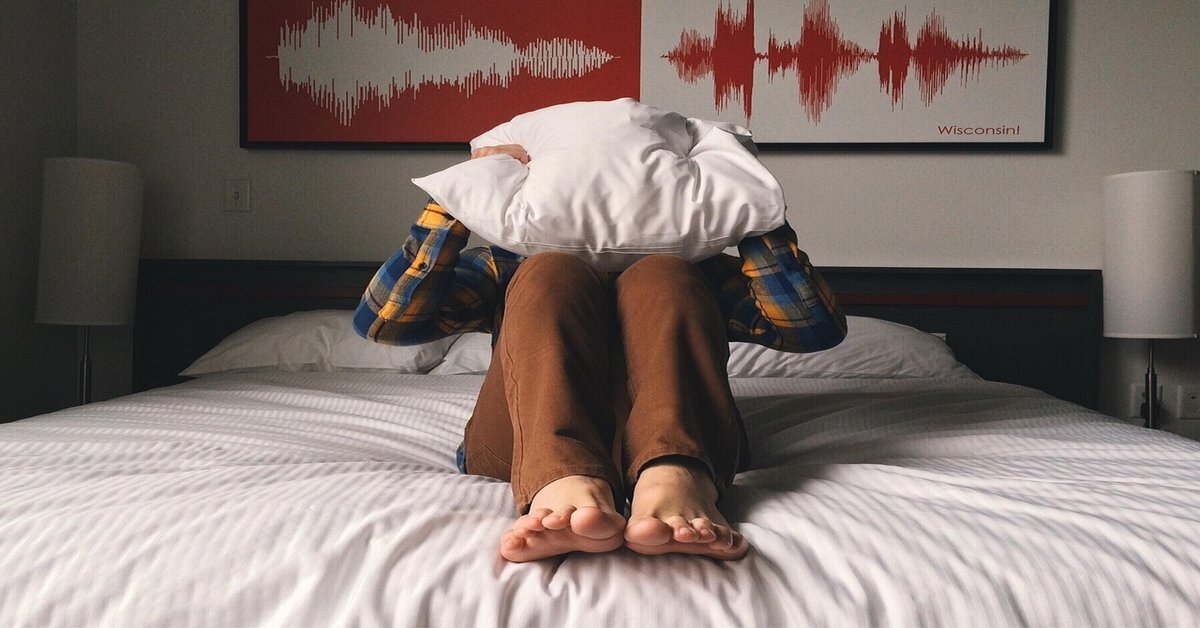Midnight Anxiety Tips for Overthinkers: How I Finally Slept

A few months ago, I didn’t know how to break the cycle of overthinking at night. I would lie in bed, exhausted, in a quiet room, hoping for sleep, but my mind would not stop. My mind jumped from one worry to the next: unfinished to-dos, awkward moments I had forgotten, even imaginary scenarios that would never happen. I adjusted my pillow, pulled the blanket tighter, and tried closing my eyes, but nothing worked. The silence only made my racing thoughts louder. What helped me most was discovering practical midnight anxiety tips for overthinkers. They were small, steady things that guided me from spiraling into calm.
If you are here, maybe you have been there too, caught between tired eyes and a restless mind. I used to think something was wrong with me. But I wasn’t broken. I was experiencing midnight anxiety, a common but often silent struggle for overthinkers. Learning how to manage spiraling thoughts and create mental rest changed my nights.
This blog is a soft space for anyone searching for support, perspective, and guidance on calming nighttime anxiety. These practices have helped me break the cycle of overthinking at night and finally find the rest I longed for.
Why Midnight Anxiety Feels Worse for Overthinkers
Midnight can be the hardest hour for those who think too much. The quiet and stillness that surround us in bed often become fuel for overactive minds. For overthinkers, silence is not peace; it is space for everything we pushed aside during the day to surface all at once.
Three reasons why anxiety increases at night:
- Distractions disappear, leaving you alone with your thoughts
- The brain begins to process unspoken worries from earlier in the day
- Stress hormones like cortisol often spike late at night (Harvard Health Publishing, 2023, March 1)
If your brain never had time to breathe during the day, it will beg for attention at night.
How Daytime Choices Shape Nighttime Peace
I used to believe my nighttime anxiety was something that started at bedtime. But I began to realize that what I did during the day directly shaped the way my mind behaved at night. The more intention I gave my thoughts throughout the day, the less they demanded space after dark.
Some habits that helped:
- Starting the morning with a few minutes of quiet before checking my phone
- Doing brief mindfulness check-ins midday to reset my mood
- Turning off screens and avoiding news in the hour before bed
Break the Cycle of Overthinking at Night
If your nights are anything like mine used to be, filled with racing thoughts and restless energy, these practical tools might offer the gentle structure you’ve been looking for. They helped me slow down, feel safer in my body, and shift my nights from chaos to calm. Over time, I found myself more able to handle spiraling thoughts and build a nighttime routine that felt gentle and sustainable.
1- Practice focused Breathing
One of the quickest ways to help your body relax is deep breathing. I use the 4-4-6 method:
- Inhale for four seconds
- Hold for four seconds
- Exhale for six seconds
Repeat for two to five minutes. This practice tells your body that it is safe to relax. The goal is not to silence the mind, but to invite it to slow down.
2- Journal Freely
When your mind is busy, putting thoughts on paper can be a huge relief. Studies show that journaling before bed can reduce anxiety and help improve sleep quality (Cleveland Clinic, 2022).

Try this:
- Write down anything weighing on your mind
- List today’s small wins
- End with a sentence of gratitude
Let the page hold your thoughts so you do not have to.
3- Schedule a Daily Worry Window
One of the most effective habits I adopted was choosing a time during the day to worry. That might sound strange, but by allowing myself 10 to 15 minutes of worry time each afternoon, I gave my brain permission to rest at night. When anxious thoughts return in bed, I remind myself: "We already had this talk today."
4- Create a Gentle Nighttime Routine
Your brain responds to patterns. By repeating calming activities every night, you build a mental pathway that says, "It is time to rest."
What worked for me:
- Drinking a cup of herbal tea
- Listening to soft instrumental music

5- Try Body Scan Meditation
This mindfulness exercise involves mentally scanning your body from head to toe and releasing tension as you go. It brings you back to the moment in the present and reduces mental noise. Apps like Calm and Insight Timer offer guided body scan meditations that are especially helpful for beginners.
According to the Cleveland Clinic (2023), these routines can significantly reduce nighttime anxiety and improve sleep readiness.
6- Daily Habits That Support Nighttime Rest
Midnight anxiety does not only come from what happens at night. Here are daily actions that made a difference in my rest:
- Limit caffeine after 3 PM
- Spend ten minutes outside each day
- Avoid overwhelming news or content before bed
- Read or listen to calming audio in the evening
Feed your brain peaceful experiences so it does not crave processing time at bedtime.

What I Used to Believe About Spiraling Thoughts
|
Myth |
Truth |
|
If I try harder to relax, I will fall asleep |
Sleep cannot be forced. Calmness comes from softness and allowing, not pressure. |
|
I have to solve all my problems before bed |
Nighttime is for recovery. Solutions are clearer in the morning. |
|
I am the only one who struggles like this |
Midnight anxiety is common. Many overthinkers experience the same silent battles. |
A Gentle Note for Overthinkers
If your nights feel long, your thoughts too loud, and rest feels out of reach, please know this:
- You are not alone
- You are not weak
- You are not doing it wrong
Your mind is trying to protect you, even if it does not know how to rest yet. But you can teach it. Every small act, whether a breath, a journal entry, or a stretch, is a signal that says, "You are safe."
Even if tonight is not perfect, you are healing. You are learning new ways to meet yourself with softness. And that is enough.
References
Cleveland Clinic. (2022, October 13). How to stop your mind from racing and get to sleep. https://health.clevelandclinic.org/when-youre-trying-to-sleep-but-your-mind-is-racing-give-these-tactics-a-try
Cleveland Clinic. (2023, June 14). How to calm your anxiety at night. https://health.clevelandclinic.org/how-to-calm-your-anxiety-at-night
Harvard Health Publishing. (2023, March 1). Anxiety overload. https://www.health.harvard.edu/mind-and-mood/anxiety-overload

